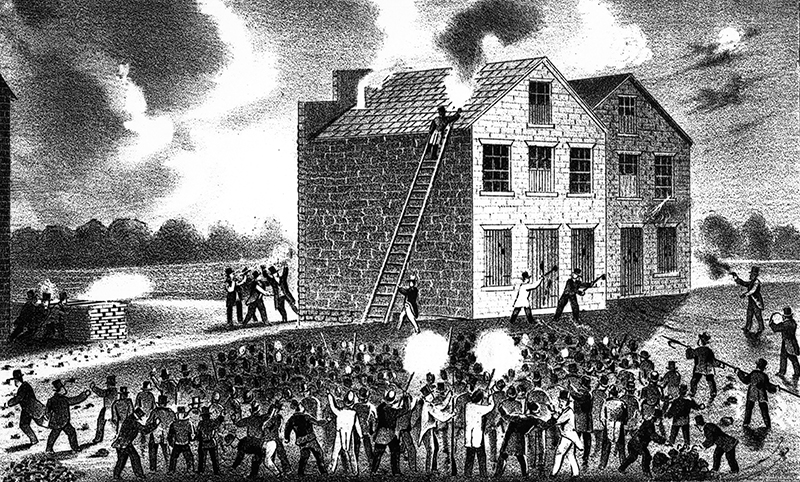Authors:
Historic Era:
Historic Theme:
Subject:
February/March 2021 | Volume 66, Issue 2


Authors:
Historic Era:
Historic Theme:
Subject:
February/March 2021 | Volume 66, Issue 2

It is often said that journalism is “the first rough draft of history,” and in recent years we've certainly had an abundance of drafts written about Donald Trump.
But we wondered what actual historians would say about events since the last election, so we sent out some inquiries. The response was overwhelming.
So we've included in this issue eleven of the best essays we received written by historians reflecting on the Trump presidency, in addition to the previous essays on historic administrations by James Banner and his colleagues.
Normally, American Heritage shies away from publishing opinions, but these historians were passionate about recent events so we've let them speak their minds.
Both David Reynolds and Bruce Watson reacted to the Capitol attack by pointing to Abraham Lincoln’s warnings about the “mobocratic spirit” and the danger when citizens operate outside the rule of law. In a democracy, Lincoln feared, autocratic politicians will inevitably surface, “and when such a one does, it will require the people to be united with each other, attached to the government and laws, and generally intelligent, to successfully frustrate his design.”
Watson writes about the famous Lyceum Speech, which Lincoln delivered in 1838 after an angry mob killed an abolitionist editor and threw his printing press into the Mississippi River. The young lawyer warned that, “Whenever the vicious portion of population shall be permitted to gather in bands of hundreds and thousands, and burn churches, ravage and rob provision-stores, throw printing presses into rivers, shoot editors, and hang and burn obnoxious persons at pleasure, and with impunity, depend on it – this government cannot last.”
Reynolds notes in his essay here that Lincoln also worried about another potential danger: the ascension to the presidency of a demagogue who was interested more in his own power than the sanctity of the Constitution. “Lincoln was a firm believer in the strength of the American Constitution, which he called the last, best hope of earth,” notes Reynolds.
Looking for a balanced assessment of Trump's presidency, I reached out to David Shribman, a Pulitzer Prize-winning journalist who recently retired as executive editor of the conservative-leaning Pittsburgh Post-Gazette. Shribman has written a number of even-handed essays about how transformative a president Donald Trump was.
“But I wouldn't write the same thing now,” Shribman told me. “The events of January 6 have changed everything.” In a thoughtful and wide-ranging essay in this issue, he looks at the positive